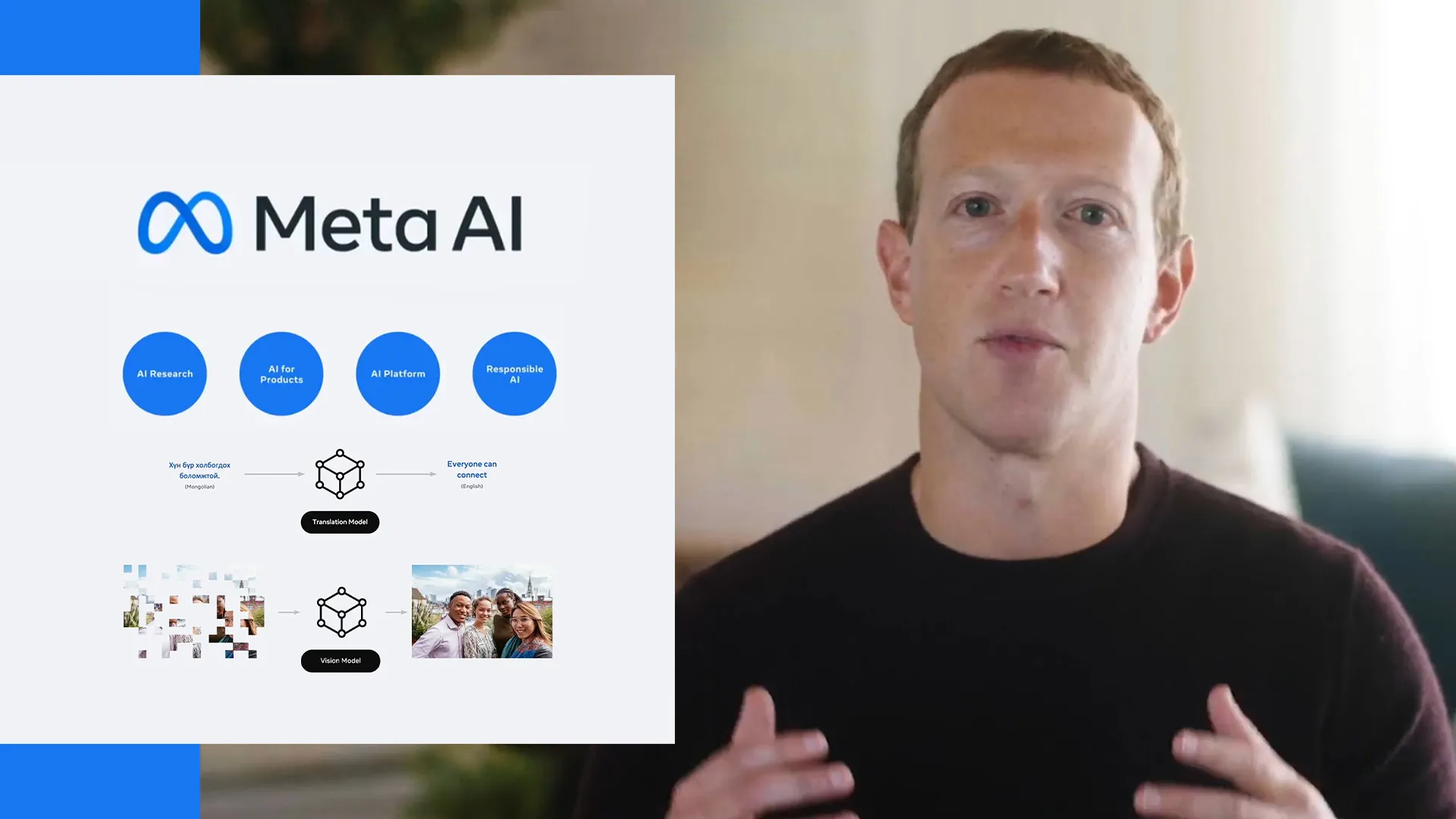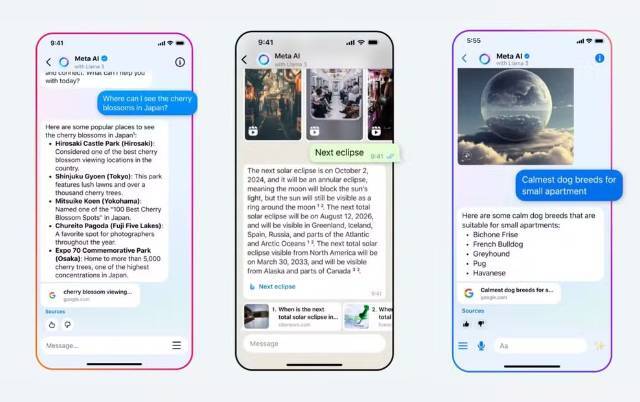Owner of Instagram, Facebook and WhatsApp, Meta began this Thursday to include artificial intelligence personal assistants on social networks. The tool, called Meta AI, is available in English in thirteen countries and will allow users to ask questions and interact with the system directly from applications, which will include accessing internet information in real time and creating images.
The launch, in addition to the USA, is available to users in Australia, Canada, Ghana, Jamaica, Malawi, New Zealand, Nigeria, Pakistan, Singapore, South Africa, Uganda, Zambia and Zimbabwe. According to the company, this “is just the beginning.” There is still no date for release in Brazil. “We are working to launch it in more locations this year, but we have nothing new to share at this time,” the company said in a statement.
Meta AI can be accessed directly from the computer
In addition to Meta AI integrated directly into Instagram, Facebook, Messenger and WhatsApp, the company also announced that it will have a web version of the robot, which can be accessed directly from the computer. The system is similar to OpenAI’s ChatGPT: the user has a box where they can interact with the AI, ask questions and generate content, including images.
In a video on social media, Meta’s CEO and founder, Mark Zuckeberg, stated that AI would be the “smartest” available on the market today. He highlighted that the virtual assistant will be able to access updated content available on Bing and Google search engines, in addition to being able to create “high quality” images:
— Our goal is to develop the world’s leading AI and make it available to the entire world — said the executive.
The robots integrated into social networks will be powered by Llama 3, the company’s most powerful language model (LLMs), also launched this Thursday. LLMs function as a kind of “brain” behind AI models. Compared to Llama 2, the new version brings more efficiency to coding language and has better performance to understand interactions and create content, according to the company.
How Meta AI will work on networks
In practice, with the virtual assistant, Meta’s social networks will have generative AI embedded in their functionalities.
On WhatsApp and Messenger, the user will be able to chat with the robot in a dialog box similar to that of a conventional contact, according to the example presented by the company. In addition to text, the user will be able to request information about updated information and create images.
The robot will also appear within the search function of all social networks (in the “search” function). “You can access information from the internet in real time without having to switch between applications,” explains the company. Among examples of use, Meta cites the possibility for the user to search for flights or search for recipes.
On Instagram, Meta AI can also be activated in chats between users. In a conversation, it will be possible to type “@Meta Ai” – and then interact with the AI and share its content with the interlocutor. The system will be able to respond to requests such as “Find a place for a picnic in San Francisco” or “Create the image of an apartment with modern furniture”.
The virtual assistant will also appear in users’ navigation through their Facebook feed as a new button. In a banner below the posts on Facebook, an interaction option called “Ask Meta AI” will appear, with suggested questions related to the content of the post.
In a music video published on Facebook, for example, suggestions for questions will appear such as “How to learn to play the guitar” or “What are the common chords in Jazz?”. When the user clicks on the virtual assistant, a conversation window with the robot opens.
WhatsApp will have animated image generator
Together, Meta’s social networks have more than 3 billion users. The objective of including AI in the company’s platforms had been announced by Zuckerberg at the end of last year, during the Meta Connect 2023 conference. The company’s advancement in chatbots comes amid the race by big techs to implement generative AI in their systems and services.
With real-time search, the company can generate competition not only for ChatGPT, from OpenAI, but also for Google itself, at a time when younger users are already looking for alternatives to carry out searches.
Meta will also expand visual content creation capabilities, using simple text commands. One of the new features is that the images will start to appear at the same time that the user enters the details of the content they want. The feature, called “Imagine” is now available on WhatsApp for US users.
The idea is that the tool shows the AI creation process as it happens. The images, in theory, will adapt to the text in real time, according to examples published by Meta.
Along with the news, the company also released a statement discussing the “responsible approach” to launching resources with artificial intelligence. The company mentions the implementation of filters in the requests that users send and in the responses generated by the model and also adjustments to the model to increase the assertiveness of the tool.
TechnologyHQ is a platform about business insights, tech, 4IR, digital transformation, AI, Blockchain, Cybersecurity, and social media for businesses.
We manage social media groups with more than 200,000 members with almost 100% engagement.










































